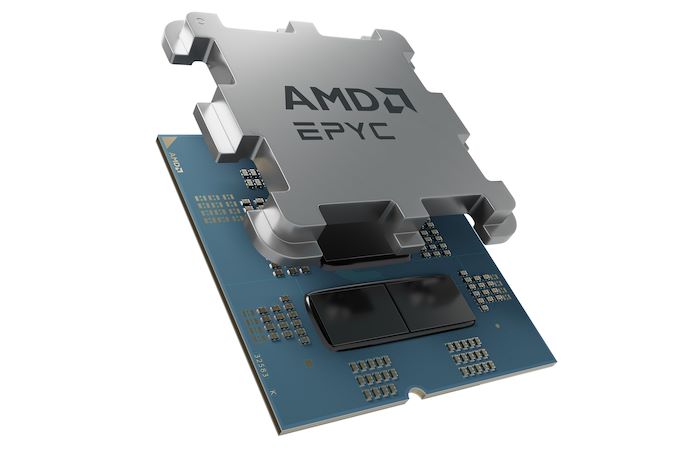AMD has successfully established itself as a significant competitor in the x86 CPU market, focusing on gaining a foothold in the profitable server market. This strategy has allowed AMD to gradually erode Intel’s dominant market share, bringing more customers into the EPYC ecosystem.
With the Zen 4 CPU architecture nearing its two-year mark, AMD is introducing a new EPYC processor line targeting the entry-level 1P server market. This move is aimed at small-scale, budget-conscious users who require a limited number of CPU cores, fulfilled by the EPYC 4004 series processors.
The EPYC 4004 family is set to take over the role previously occupied by Ryzen chips in servers, marking a significant upgrade with dedicated chips and enhanced features suitable for the EPYC lineup. This series aims to expand AMD’s market by attracting small business users, offering a cost-effective series with 4 to 16 cores derived from their consumer platforms.
The EPYC 4004 series, based on the AM5 platform and Raphael processors (also known as the Ryzen 7000 series), consists of 8 chips primarily repurposed Ryzen 7000 SKUs with similar core counts, clock speeds, and TDPs, with a unique 4-core 4124P offering.
| AMD EPYC 4004 Processors | ||||||||||
| AnandTech | Core/ Thread |
Base Freq |
1T Freq |
L3 Cache |
PCIe | Memory | TDP (W) |
Price (1KU) |
Ryzen Version | |
| 4584PX | 16 | 32 | 4200 | 5700 | 128MB (3D) | 28 x 5.0 | 2 x DDR5-5200 UDIMM | 120 | $699 | 7950X3D |
This lineup utilizes the Zen 4 architecture across all chips. The series includes high-performance cores with no core clocking lower than 5.1GHz, including models with AMD’s 3D V-Cache technology.
Despite its focus on cost-effectiveness, the EPYC 4004 series includes features expected from the Zen 4/AM5 platform, such as PCIe 5.0 lanes, DDR5 memory support, integrated graphics, and ECC compatibility for UDIMM memory types. However, it lacks support for RDIMMs.
While AMD has not disclosed the chipset for the EPYC 4004 processors, it is distinguished at the motherboard level by enterprise features such as BMC support, software RAID, and server OS support, offering a robust platform intended for server usage.
AMD’s new chips are positioned to compete against Intel’s Xeon-E family, offering a unique range of core counts that Intel does not match directly at this level, potentially leveraging an advantage in multi-threaded performance and Windows Server 2022 licensing efficiencies.
The launch of the EPYC 4004 series is effective immediately, promising prompt availability through AMD’s server partners, permitting a swift deployment in the targeted market segments.










